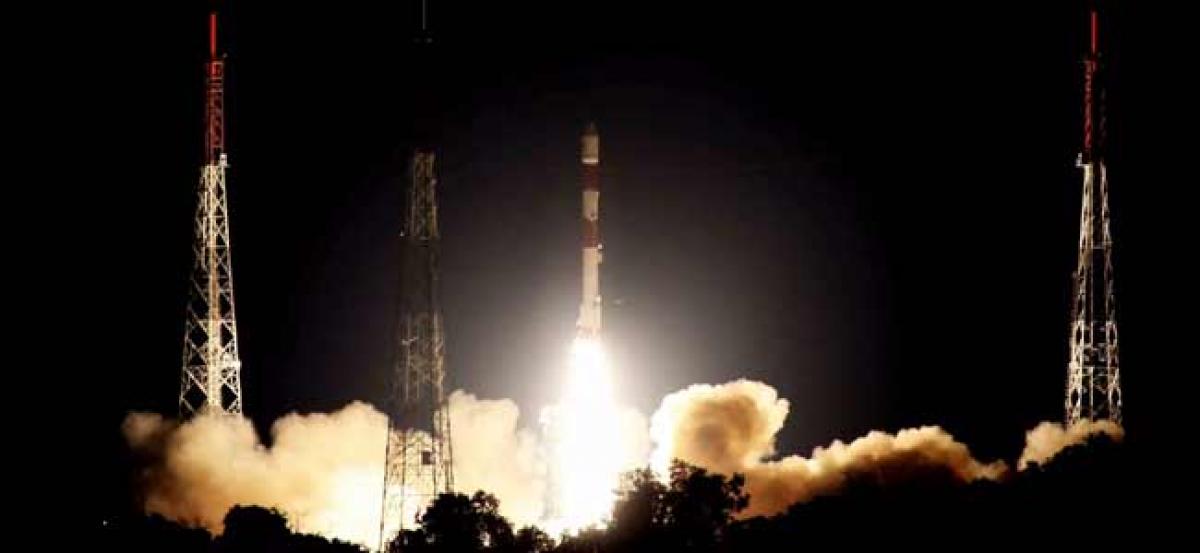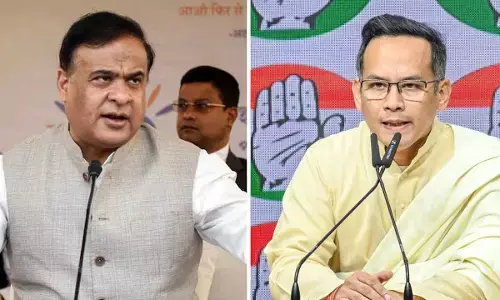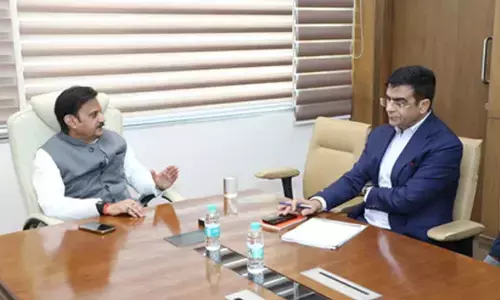India’s PSLV rocket successfully puts two UK satellites into orbit

India on Sunday night successfully put into orbit two British earth observation satellites, NovaSAR and S14, in copy book style Two satellites aboard the Indian rocket Polar Satellite Launch Vehicle PSLV belonged to Surrey Satellite Technologies Ltd SSTL, UK
Sriharikota: India on Sunday night successfully put into orbit two British earth observation satellites, NovaSAR and S1-4, in copy book style. Two satellites aboard the Indian rocket - Polar Satellite Launch Vehicle (PSLV) - belonged to Surrey Satellite Technologies Ltd (SSTL), UK.
The satellites were put into sun-synchronous orbit under commercial arrangement with Antrix Corp Ltd, the commercial arm of the Indian Space Research Organisation (ISRO), the Indian space agency. The total lift-off weight of the two satellites was 889 kg.
Watch Video: PSLV-C42 Rocket Launch Successful
NovaSAR weighing 445 kg is a S-Band Synthetic Aperture Radar satellite intended for forest mapping, land use and ice cover monitoring, flood and disaster monitoring. S1-4 weighing 444 kg is a high-resolution Optical Earth Observation Satellite, used for surveying resources, environment monitoring, urban management and for disaster monitoring.
After the successful launch, ISRO Chairman K. Sivan said: "The PSLV rocket preciously placed two of our customer satellites in 583 km orbit. The success will give added energy for the industry to make PSLV."
At 10.08 p.m. the four staged/engine PSLV-CA rocket, standing 44.4 metres tall and weighing 230.4 tonnes, blasted off from the first launch pad. With the fierce orange flame at its tail lighting up the night skies here, the rocket slowly gained speed and went up and up enthralling the people at the rocket port while the rocket's engine noise like a rolling thunder adding to the thrill.
Just under 18 minutes into the flight, the rocket slung NovaSAR and S1-4 into the orbit.
Answering a question raised in the Rajya Sabha, the Minister of State in the Prime Minister's Office, Jitendra Singh, said in August: "In the last four years more than 200 foreign customer satellites have been launched. Considering the future launch demand for increased number of nano and small satellites, there are plans to increase the number of PSLV launches and also develop dedicated small launcher to cater to this high market demand."
According to him, as on August 9, 237 foreign satellites belonging to international customers from 29 countries have been successfully launched using PSLV. With the successful launch of two British satellites on Sunday, the total number of foreign satellites launched by India goes up to 239.
"We have an order book of Rs 980 crore, with Rs 500-600 crore contracts in pipeline for launch services in this fiscal (2018-19) and next fiscal (2019-2020)," S. Rakesh, Chairman-cum-Managing Director, Antrix Corp, said in a recent interaction with IANS.










